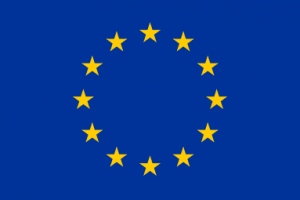Mocku for Change is the last activity of a larger module on Climate Change. It has been designed to address the lingustical challenge that the climate crisis is posing to us: the need to elaborate new words, narratives or art forms to conceptualize the magnitude of its entity and impacts. The activity exploits concepts from future studies and complex systems in order to help students deal with uncertainty by investigating “probabilities” and “possibilities”, and embrace complexity by overcoming some typical dichotomies related to Climate Change.
The activity is related to FEDORA's work packages 1, 2 and 3, being an interdisciplinary experience between arts and science that encouraged students in imagining and creating their desirable or undesirable future scenarios by experimenting with the filmmaking genre called "mockumentary". The activity has been designed in allignement with five design principles that mapped FEDORA's general recommendations into a practical dimension: 1) Value interdisciplinarity, 2) Elicit epistemic emotions, 3) Go beyond dichotomous thinking and telling, 4) Embrace and embed complexity and uncertainty, 5) Exercise scenario building and thinking about the future in pluralistic ways.
The mockumentary language have the potential to work both as a thinking tool to enhance students' imagination and reflection, and a linguistic tool to foster their self-expression by a re-shaping of knowledge that is linked to epistemic emotions, personal feelings and personal thoughts. The artistic constraints of the mockumentary genre help students in picturing “imaginative yet realistic” scenarios, by inserting a large range of specific climate change features into realistic narrative scenarios (realistic people and stories) and in overcoming some typical polarisation attitudes related to Climate Change. In fact, the activity proved valuable in addressing four main polarizations: Fiction/Non-fiction (intrinsically related to the mockumentary genre), Individual/Collectivity, Reflection/Agency and Simple/Complex.
The Climate Change module consists in a total of 26 hours. The Mocku for Change activity is the last part of the module: 2 lessons (2 hours each) and 3 meetings (3 hours each) for a total of 13 hours. The introduction consists in a preliminary lecture designed to introduce the mockumentary genre and its use to investigate climate scenarios and carried out with the help of a power point presentation, enhanced by the insertion of questionnaires, videos and jamboards. The operative phase consist in three laboratorial meetings to support students during the mockumentary making process. Each meeting is dedicated to a specific videoproduction phase: Writing, Shooting and Editing. The final lesson is designed as a Film Festival, meaning that it involves screenings, voting and awards. Throughout the activity students are encouraged to reflect upon the epistemological difference between "scenario" as future projection of today’s scientific knowledge on Climate Change based on Climate models (reality/non-fiction), and "scenario" as projection of our dreams, desire and epistemic emotion on a fictional story settled in the future (imagination/fiction). They are conseguently guided into linking those reflections to epistemic emotions and finally translating/representing them with the help of muckumentary genre's tools, inherently related to deal with the Fiction/Non-fiction dicotomy.
